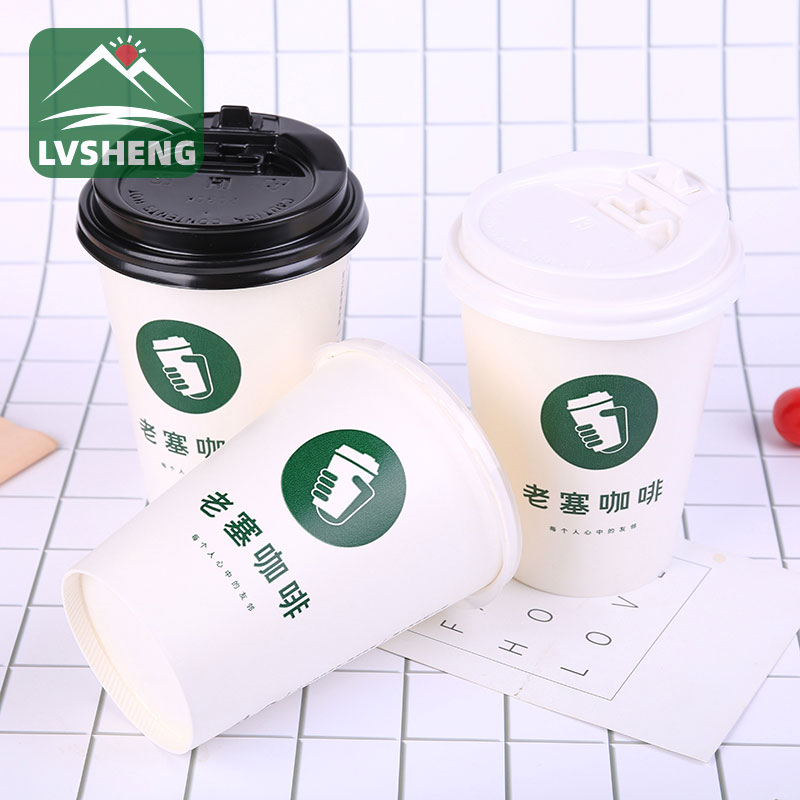Understanding the Compostability of Disposable Cups
2024-06-24
As environmental concerns grow, many people are seeking sustainable alternatives to everyday items, including disposable paper cups. While paper cups are often seen as a better option than plastic, their compostability remains a topic of debate. In this blog, we will explore whether paper cups can be composted, the conditions required for their composting, and what you can do to make more eco-friendly choices.
Composition of Paper Cups
To understand the compostability of paper cups, it's essential to first look at their composition. Standard paper cups are made from paperboard, a type of thick paper, and are lined with a thin layer of plastic, typically polyethylene (PE), to make them waterproof and able to hold liquids without leaking. Some newer paper cups use a lining made from polylactic acid (PLA), a biodegradable plastic derived from renewable resources like corn starch.
Composting Paper Cups: Key Factors
1. Plastic Lining
Traditional PE Lining: The plastic lining in most paper cups is not biodegradable and poses a significant barrier to composting. This lining prevents the paper cup from breaking down naturally in compost piles and industrial composting facilities.
Biodegradable PLA Lining: Cups with PLA lining are designed to be compostable, but they require specific conditions found in industrial composting facilities. These conditions include high temperatures (above 140°F or 60°C) and sufficient time for the PLA to break down completely.
2. Industrial vs. Home Composting
Industrial Composting: PLA-lined paper cups can be composted in industrial composting facilities, which maintain the necessary high temperatures and controlled conditions to decompose both the paper and the PLA lining. It's important to check with local composting facilities to see if they accept PLA-lined paper cups.
Home Composting: Most home composting systems do not reach the high temperatures needed to break down PLA effectively. Additionally, traditional PE-lined paper cups are not suitable for home composting due to their plastic content.
3. Contamination Issues
Proper Sorting: For paper cups to be composted, they must be properly sorted to ensure that only compostable materials enter the compost stream. Contamination with non-compostable items can hinder the composting process and reduce the quality of the finished compost.
Benefits of Composting Paper Cups
1. Waste Reduction: Composting paper cups can significantly reduce the volume of waste sent to landfills, where they would otherwise contribute to methane emissions and take up valuable space.
2. Soil Enrichment: Composting converts organic waste into nutrient-rich compost, which can be used to improve soil health and support plant growth, closing the loop in the lifecycle of the product.
Challenges in Composting Paper Cups
1. Lack of Infrastructure: Many areas lack the necessary infrastructure for industrial composting of PLA-lined paper cups, limiting their compostability.
2. Consumer Awareness: Many consumers are not aware of the differences between compostable and non-compostable paper cups, leading to improper disposal and contamination of compost streams.
Making Eco-Friendly Choices
1. Use Reusable Cups: One of the most effective ways to reduce waste is to use reusable cups. Many coffee shops and restaurants offer discounts for customers who bring their own reusable cups.
2. Choose Compostable Options: When disposable cups are necessary, opt for those labeled as compostable and ensure they are disposed of in the appropriate composting facilities.
3. Advocate for Better Infrastructure: Support local initiatives and policies aimed at improving composting infrastructure and waste management systems to handle compostable materials effectively.
Conclusion
While paper cups with traditional PE linings are not suitable for composting, those with PLA linings can be composted in industrial facilities. The key to successfully composting paper cups lies in proper sorting, consumer awareness, and access to suitable composting infrastructure. By making informed choices and advocating for better waste management practices, we can reduce the environmental impact of disposable paper cups and move towards a more sustainable future.



